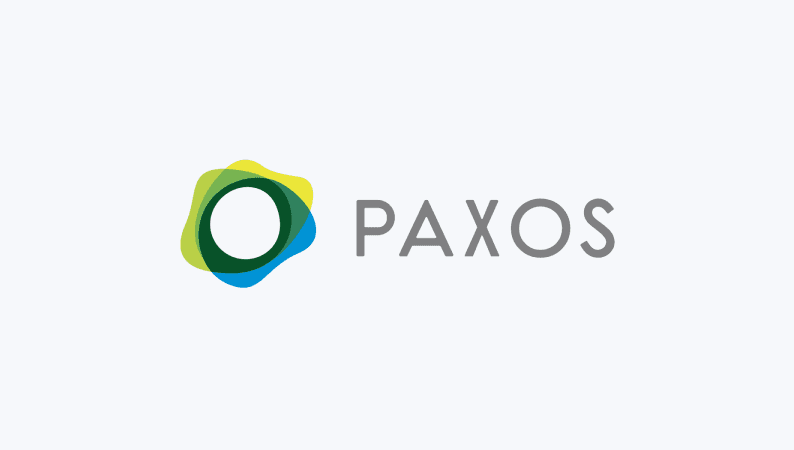3 Reasons Blockchain Can Improve the Flow of Global Remittances
Paxos
Aug 23, 2023

Global remittances play a significant role in the global economy, serving as a vital lifeline for millions of families and communities worldwide. Remittances can be broadly defined as any money sent from one party to another, whether the parties be individuals, companies or countries. However, we often use the term to refer to funds sent from one country to another, where the sender is a foreign worker and the recipient is a relative in the recipient's home country.
Remittances sent by families working overseas contribute significantly to poverty reduction, economic growth and financial sector development in many parts of the world. Governments and policymakers recognize the importance of remittances and often implement measures to facilitate the flow of funds and to create an enabling environment that maximizes their positive impact on sending and receiving economies.
Key factors contribute to the importance of global remittances
Migration remains a prominent feature of our interconnected world, driven by economic disparities and job opportunities abroad. With migration comes remittances, driven by several key factors listed below:
Poverty reduction and consumption Remittances directly alleviate poverty in many developing nations. They provide a reliable source of income for recipient households, enabling them to meet basic needs such as food, shelter, education and healthcare. Additionally, remittances often boost local consumption, driving demand for goods and services in recipient countries, and stimulating economic growth.
Stability and resilience Remittances can act as a stabilizing force during economic downturns or crises, as they offer a steady source of income even when other economic sectors may falter. During times of hardship or natural disasters, remittances can help families recover and rebuild.
Financial sector support Remittance flows also benefit the financial sector in both sending and receiving countries. Migrants often utilize formal financial channels to send money, encouraging the development and expansion of banking and money transfer services.
Despite these factors, global remittances face several challenges. High transaction fees and exchange rate costs can diminish the value of remittances for recipients. The reliance on informal channels may expose senders and recipients to security risks.
Economic uncertainties, political instability and restricted access to financial services in some regions further hinder the smooth flow of remittances, impacting millions of families dependent on these funds for their livelihoods.
Remittances will benefit from blockchain technology
Overall, a multi-faceted approach that combines technological innovation, regulatory support, financial inclusion and informed decision-making is crucial to address the challenges associated with global remittances and ensure their positive impact on both senders and recipients.
Blockchain technology may emerge as the innovative technological solution for three main reasons:
Security and transparency: Blockchain's decentralized and immutable nature enhances the security and transparency of remittance transactions. Each transfer is recorded in a tamper-proof public ledger, reducing the risk of fraud, data manipulation or unauthorized access. This instills trust in the remittance process for both senders and recipients, as they can easily verify the status and details of their transactions.
Cost-efficiency: Traditional remittance methods often involve multiple intermediaries, leading to high transaction fees and currency exchange costs. Blockchain reduces the need for intermediaries and streamlines the process, significantly reducing overhead expenses. This cost-effectiveness is especially beneficial for smaller remittances, as recipients receive a larger portion of the transferred funds.
Speed and accessibility: Blockchain enables near-instantaneous cross-border transactions, bypassing the delays associated with traditional banking systems. This speed is particularly advantageous for recipients who urgently need the funds for immediate expenses. Additionally, blockchain-based remittance solutions can be accessed through secure platforms accessed through smartphones and the Internet, making them more inclusive and accessible to individuals with limited access to traditional banking services.
For these reasons, blockchain-powered remittance platforms have already gained traction, garnering interest from major institutions and FinTech companies, promising to transform the remittance industry.
The road ahead for remittances
Some challenges remain even if remittances are improved by the clear advantages offered by an economic system powered with blockchain technology. Solving for better global remittances requires a comprehensive and collaborative approach involving various stakeholders.
Governments must collaborate at the international level to harmonize remittance regulations, and to ensure consistency and clarity across borders. Additionally, expanding financial access for unbanked and underbanked populations requires collaboration between banks, mobile network operators and fintech companies in addition to governments. Implementing robust consumer protection measures will ensure fair treatment of remittance senders and recipients. Ongoing investment in research and innovation in the remittance sector will lead to the development of more efficient solutions.
Looking to the future, international organizations, governments and private sector stakeholders can cooperate to address cross-border remittance challenges and promote best practices for secure and efficient global remittance flows. Along with these combined efforts, blockchain technology can improve global remittances – benefitting both senders and recipients, promoting financial inclusion and contributing to poverty reduction and sustainable development worldwide.

Learn more about how tokenization and blockchain technology can help your enterprise

